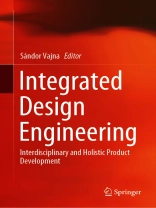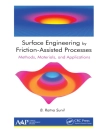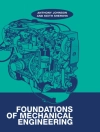This book addresses Integrated Design Engineering (IDE), which represents a further development of Integrated Product Development (IPD) into an interdisciplinary model for both a human-centred and holistic product development. The book covers the systematic use of integrated, interdisciplinary, holistic and computer-aided strategies, methods and tools for the development of products and services, taking into account the entire product lifecycle. Being applicable to various kinds of products (manufactured, software, services, etc.), it helps readers to approach product development in a synthesised and integrated way.
The book explains the basic principles of IDE and its practical application. IDE’s usefulness has been demonstrated in case studies on actual industrial projects carried out by all book authors. A neutral methodology is supplied that allows the reader to choose the appropriate working practices and performance assessment techniques to develop their product quicklyand efficiently.
Given its manifold topics, the book offers a valuable reference guide for students in engineering, industrial design, economics and computer science, product developers and managers in industry, as well as industrial engineers and technicians.
Tabella dei contenuti
Part I: Basics.- Procedures and Models of Integrated Product Development (IPD).- Basics of Integrated Design Engineering (IDE).- Part II: Attributes in IDE.- Attributes and their Context.- Product Attributes.- Fulfilment Attributes.- Economic Attributes.- Part III: Integrations within IDE.- Area Integration.- Integration of Organisations and Processes.- IDE Holistic Procedure Model.- Knowledge Integration.- Application and Information Integration.- Part IV: Trans-sectional Functions.- Scenario Techniques.- Marketing.- Methods for IDE.- Mechatronics.- Value Creation and Business Planning.- Economical Aspects in IDE.
Circa l’autore
Prof. Dr.-Ing. Prof.h.c. Dr.h.c. Sándor Vajna, born 1952, received both his Diploma degree and his Doctor’s degree in Mechanical Engineering from Karlsruhe University (now Karlsruhe Institute of Technology), Germany. He has 12 years of industrial experience in research & development, management and consulting in connection with Product Development, Design Methodology, CAx, Process Reengineering, CIM/PLM, and Information Technologies. From 1994 to 2017, he was head of the Chair of Information Technologies in Mechanical Engineering, University of Magdeburg, Germany.












